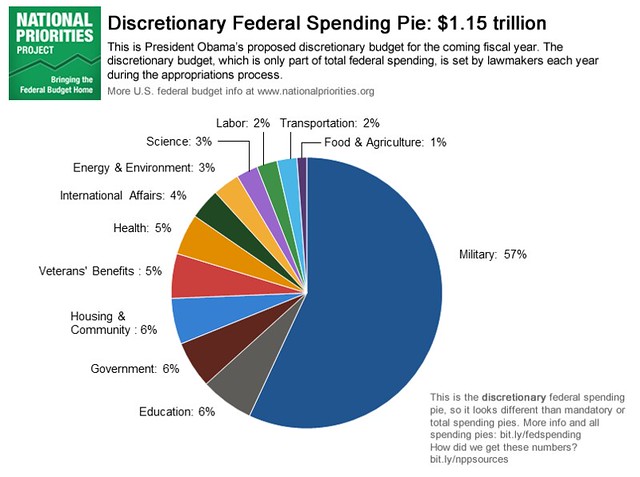Sequestration Uncertainty
By
Chris Hellman
Posted:
|
Budget Process
The discretionary budget would see substantial cuts if sequestration took effect.
Last week’s fiscal cliff deal left much unresolved – no agreement on raising the debt ceiling, the fiscal year 2013 budget is still incomplete, and there was no more than a delay in dealing with one of the major components of the cliff: sequestration.
Sequestration – the automatic, across-the-board cuts to discretionary spending mandated in the Budget Control Act (BCA) of 2011 – was supposed to go into effect on Jan. 2. The fiscal cliff deal delayed its implementation by two months, until March 1.
A lot of confusion remains about sequestration. First, the fiscal cliff deal – officially called the American Taxpayer Relief Act of 2012 – offsets the two-month delay in sequestration. It does so in two ways: by taxing transfers between traditional Individual Retirement Accounts (IRAs) and Roth IRAs, and through discretionary spending cuts. So, in effect, it avoids discretionary spending cuts in part by making discretionary spending cuts.
And while Congress kicked the sequestration can a little bit further down the road, it left no clear vision for how it might be addressed in the future. Further delay? Repeal? Allow it to occur? We now know exactly the same about the future of sequestration as we knew before the fiscal cliff deadline.
If sequestration were to occur, we also don't know how it would be implemented by federal agencies, and what impact it would have on government operations and programs. At the Pentagon, there are concerns about cancelling weapons purchases. And all the federal agencies are uncertain about how to deal with a cut of roughly 9 percent to their payroll budgets – will federal employees see pay cuts? Furloughs? Layoffs? And how will reduced work hours impact the distribution of government benefit checks for such things as pensions, pay or Social Security benefits?
Finally, the uncertainty about sequestration is having a ripple effect on other aspects of the federal budget. Although there has been no official word as yet, it is being widely reported that the White House's Office of Management and Budget will delay the scheduled Feb. 4 release of the president’s FY2014 budget request until early March or later. That potential delay is primarily the result of Congress' failure to enact a budget for FY2013 – which began on Oct. 1, 2012 – but the uncertainty about the impact of sequestration is clearly adding to the chaos.
